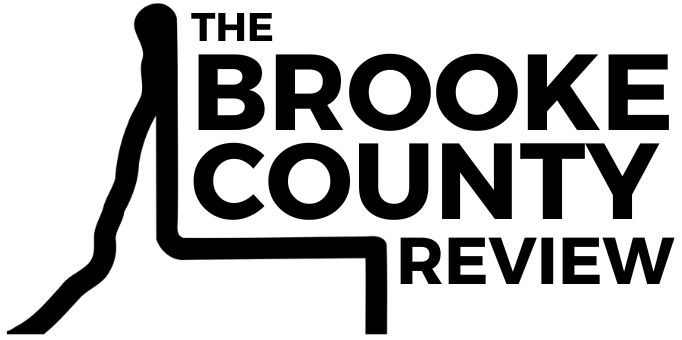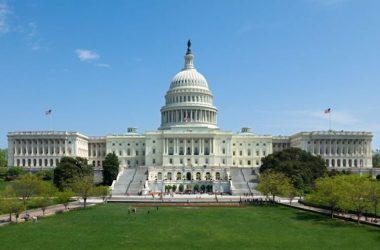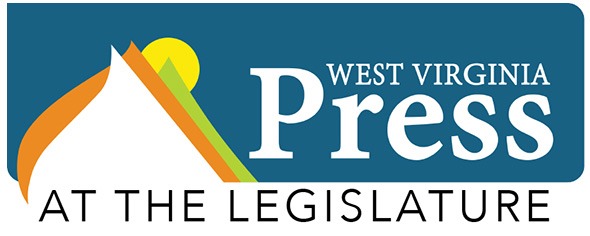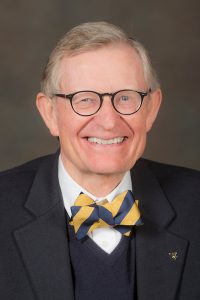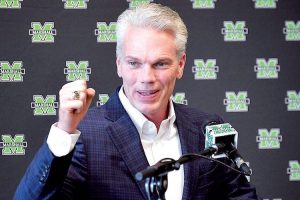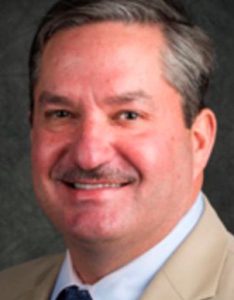By Matt Young, WV Press Association
CHARLESTON, W.Va. – Higher education is facing major changes, challenges and opportunities.
The presidents of WVU and Marshall delivered that message to the West Virginia Legislature’s Senate Finance Committee on Thursday.
West Virginia University President Gordon Gee celebrated his 79th birthday on Thursday by discussing his university with committee members.
Marshall University President Brad Smith presented the Marshall update to the committee.
Gee began by telling the committee, “I am Benjamin Button, I get younger every year,” before complimenting Smith for being “one of the bright stars in higher education.”
Smith presented the first university update, provided the committee with an overview of his institution.
“Today, Marshall University is a vibrant ecosystem,” Smith began. “We serve over 11,000 students, 77% of whom come from the great State of West Virginia. Over half of them this year are the first in their family to go to college, and they’re served by dedicated faculty and staff that number 1,770 in total.”
Smith explained that Marshall University consists of four physical campuses: Huntington, South Charleston, Point Pleasant, and Teays Valley. Smith further stated that the university offers a full online curriculum as well.
“Marshall University is a prosperity platform,” Smith said. “We play that role for individuals. We also accelerate innovative ideas, and we have an economic impact in the community, the state, and the Appalachian Region.”
“For every dollar invested in Marshall University, we can show a 14-time return on that investment,” Smith noted.
According to Smith, there are, “Three trends reshaping education in America”- the digital transformation, the demands of the “knowledge economy,” and new online learning platforms such as YouTube, Coursera, Khan Academy, and Credly.
“Now what’s happening is higher education is taking a step back and saying, ‘We have to teach things that are now in demand in the 21st Century,” Smith told the committee. “We need to meet students where they are – which is more on-demand. And we need to define new ways to be distinctive.”
“Change happens to us, or through us,” Smith noted. “It’s our choice.”
Approximately 63% of Marshall students graduate with $26,000 or more in student-loan debt, Smith said. One of the university’s goals is to eliminate student loan debt upon graduation within the next ten years.
Gee said WVU is preparing for change in the next decade.
“We are going through a fundamental existential moment in education where we are going to have to reinvent ourselves,” Gee said. “If we don’t do that, we’re going to become irrelevant. I believe higher education will either be the architects of change, or we’ll be its victim.”
Gee explained that WVU was founded in 1867 as the Agricultural College of West Virginia, and is one of the nation’s first land-grant universities.
“Our land grant came from the far reaches of Minnesota,” Gee said. “They sold land there and established our University. But in many ways, because (Abraham) Lincoln established us (West Virginia) as a state in 1863 – the only state established by presidential proclamation – we are Mr. Lincoln’s university.”
“I say that with great pride, but I also say it with great humility,” Gee added. “If we are that, then we have to live according to those expectations.The role of our university is to make sure that everyone in the state has access to an educational-experience.”
Gee explained that while, “University life is not for everyone, we all need to grow and educate ourselves.”
“When Christopher Columbus landed on our shores until [the year] 1900, knowledge doubled once,” Gee noted. “Now, knowledge is doubling every twelve hours. Let’s take action, move forward. Let’s be agile and let’s be creative.”
Gee explained that WVU serves students at five different physical campuses across the state; Morgantown, Beckley, and Keyser, with Health Sciences campuses located in Charleston and Martinsburg. In addition, WVU Extension agents are located in all 55 counties in West Virginia. Nearly 28,000 students are enrolled between the five campuses.
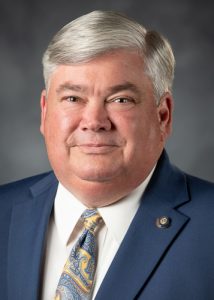
“I will also say – without bragging too much – that we have some of the world’s best programs,” Gee added. “Our forensics science program is probably the best in this country. The CIA, FBI and the national security forces come in droves to hire our students.”
In response to a question from Sen. Jack David Woodrum regarding education’s role in the trend of young people “embracing elements of socialism more than capitalism,” Gee said, “I can honestly say that we (Gee and Smith) are driven towards creating a very open environment within our institutions.”
“Free speech is very important to me – I believe that all ideas are welcome,” Gee added. “You talk about safe spaces – universities have to be the safest of spaces so that everyone is welcome.”
At the conclusion of the presentations, Sen. Rupie Phillips, R-Logan, said, “There’s a lot of people not working because they don’t have to. I don’t know what you can do to incentivize people to quit sitting at home – living off mama, papa, meemaw and pawpaw – but we’ve got to get the people back to work.”
“I want each of you universities to get together on that and let’s get these people back to work,” Phillips added. “I’ve got plenty of jobs down in Logan County if we can just get them to come to work.”
“I’m hopeful that we can turn around that workforce participation rate,” Smith responded. “It’s certainly our commitment, I know it is President Gee’s commitment, and I think all of our peers in higher education lean into that as well.”
